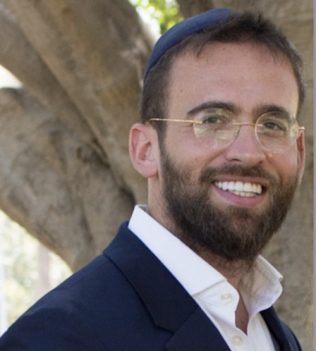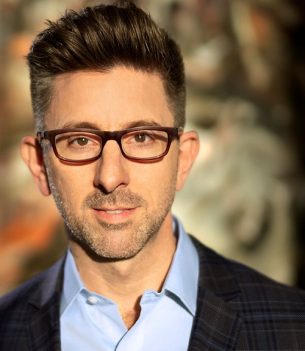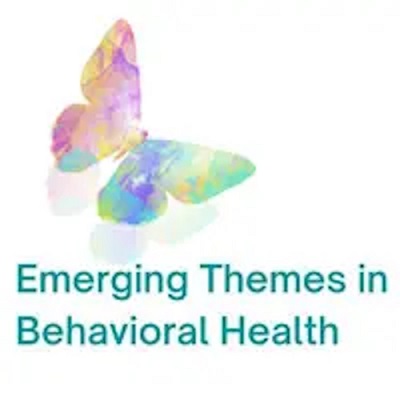With a focus on evidence-based practices, the 2023 healthcare conference highlighted showing people how to pivot from surviving to thriving by transforming the brain through loving care.
By John Lavitt
Los Angeles, CA (The Hollywood Times) 05-02-2023
Given the trauma and the stress post-pandemic that reflect the deep divisions in the United States, healthcare conferences focusing on evidence-based practices are critical. Partnering for a second year with the UCLA Luskin Conference Center, Emerging Themes in Behavioral Health 2023 brought the best minds from across the country for a two-day live event.
The theme of this year’s conference was “The Transformational Brain; From Survive to Thrive.” By providing a platform for mental health leaders and clinicians to discuss the latest developments in evidence-based best practices in treatment and prevention, Emerging Themes offered a place where the most relevant mental health topics impacting people worldwide could be examined in a progressive environment.
Indeed, from the panels in the premiere exhibit hall to the content-rich workshops, the material presented was consistently research-based and contextually forward-thinking. More than ever, dynamic leaders in behavioral healthcare need to come together in such forums. By joining forces, they help to overcome the stigma and prejudices that keep people from accessing care.

Intrigued by content focused on long-term healing and preventing the need for healing, the Hollywood Times spoke with the thought leaders at the conference. JD Kalmenson, the CEO and Founder of Montare Behavioral Health and the Renewal Health Group, is proud that both organizations are the conference’s Platinum Sponsors. Making such an investment is investing in the future. Kalmenson illuminates why such major gatherings of healthcare professionals are needed.
With a passion, he says, “We are so excited to have the opportunity to present these emerging themes to a wider audience because it helps us realize the heart of our mission. First, we want to destigmatize behavioral health challenges through educational forums and wider messaging that raise awareness. Second, we hope to expand the acceptance of new evidence-based treatment practices and disrupt the stagnation in recovery circles by showcasing the latest in clinical sophistication.”
As a Yale Chabad Scholar, Kalmenson understands the importance of balancing spirituality with evidence-based practices. He explains, taking the message one step further, “People need to know how many treatment professionals are committed to exploring emerging themes, new modalities, and innovative interventions to help those in need. Raising awareness opens the door for so many people to access the professional help and support they desperately need. When we say help, we do not mean we only want them to survive. We aim to help people live their best lives by showing them how to thrive.”

Cutting-edge treatment, prevention methodologies, and evidence-based practices are required to help people thrive. Thus, Emerging Themes in Behavioral Health brings renowned experts nationwide to participate in the conference. A prime example was Dr. Marc Brackett, PhD, internationally known for his work as the Founder and Director of the Yale Center for Emotional Intelligence. Also a Professor in the Child Study Center at Yale University, Marc is the author of the bestselling book, Permission To Feel, which has been translated into 22 languages.
When asked what the public needs to know about Emerging Themes in Behavioral Health, Dr. Brackett offers a positive perspective, “People need to be aware that times are changing for the better. Today, creative treatments are being developed for many behavioral health challenges, including anxiety, depression, eating disorders, and more. The beauty of research is the constant exploration of new ways to help people have greater mental health and well-being.”
Getting to the heart of his work, Dr. Brackett explains, “With that said, I am a preventionist first and foremost. No matter how many new treatments we develop, we still need to focus upstream by helping children develop critical social and emotional skills starting at an early age. We must educate parents and teachers to help prevent new cases that are becoming more and more difficult to treat given the mental health issues facing our society.”
Indeed, the passion in his voice resonates when Dr. Brackett says, “I am a proponent of highly creative preventions and treatments, but I am a stronger advocate for early prevention and skill building. Our Center focuses on building primary prevention programs for all children. My hope is that our country makes a commitment to educating all children in emotional intelligence education From preschool through high school and beyond.”
Indeed, early prevention is essential because childhood trauma is so common. Regarding substance use disorders and many mental health challenges, Dr. Gabor Maté is famous for saying, “The attempt to escape from pain is what creates more pain… The question is not why the addiction, but why the pain.” No matter how effective prevention efforts become, evidence-based treatments will also be needed, given the commonality of such childhood trauma. No amount of prevention will ever be able to wholly prevent family-based traumas that lead to both mental health and substance use disorders.
As the CEO and Chief Medical Officer of Galen Hope, an integrated treatment program for eating disorders, mental health, and complex presentations for adolescents and adults, Dr. Wendy Oliver-Pyatt, MD, FAED, understands the commonality of trauma in today’s world. To help address this issue, Dr. Oliver Pyatt also is the Chairman and Co-Founder of Galen Mental Health, a national network of exceptional mental health treatment centers. In relation to cutting-edge healthcare innovations, she is the Co-Founder, CEO, and Chief Medical Officer of Within Health, a revolutionary online treatment program for eating disorders.

Talking with The Hollywood Times, Dr. Wendy Oliver-Pyatt highlights the role of addressing trauma in Emerging Themes in Behavioral Health. She explains, “Although trauma has always been a factor, we have not always had the language to describe it or an understanding of its role beyond the strict definitions of trauma found in the DSM (Diagnostic and Statistical Manual of Mental Disorders). Many people who had a trauma response in the past were invalidated because they did not fall under these traditional definitions. We now have a much better understanding of experiences that seem small from without but are traumatic within a person.”
Dr. Oliver-Pyatt details these latest updates: “For example, an understanding of the effects of traumatic events online or the negative messaging of diet culture have helped to open the door to a broader and more applicable understanding of trauma and its lasting effects. Such an understanding leads directly to evidence-based interventions and treatments to address these issues and start the process of healing. In a heavily divided society, trauma is now like an explosion that cannot be ignored.”
Addressing these explosions, Dr. Oliver-Pyatt points out, “Since the trauma responses get woven into other behaviors like eating disorders, they must be addressed. With eating disorders, the body is the playing field where the trauma is negatively and painfully expressed. Emerging modalities almost all agree that effectively treating the underlying trauma is essential to prevent a behavioral health condition from worsening.”
Beyond treating the underlying trauma, Emerging Themes in Behavioral Health also underlined the importance of going beyond survival. If the brain is transformed, then why not go all the way? Beyond surviving, doesn’t it make sense to focus on thriving? Therefore, a powerful takeaway of this year’s event was the optimization of the human being. The question addressed was how behavioral healthcare professionals could help their clients and patients access their best selves and walk the path they were put on this earth to walk.

Did the Emerging Themes in Behavioral Health uncover the ultimate answer to the profound inquiry? Not necessarily, but they did manage to connect the optimization of the human brain to loving care and proactive compassion. By taking positive steps in our daily reality, human beings can implement changes that prove revolutionary in the long term. Moreover, as conference organizer Renee Baribeau, who is known as the Practical Shaman, points out, proposals for Emerging Themes in Behavioral Health 2024 are already being accepted. Indeed, the quest goes on, and the work never ends.
Summing up the impact of the conference, JD Kalmenson expresses a sense of gratitude and positivity. He says, “It has been an honor for Montare Behavioral Health and the Renewal Health Group to be the platinum sponsors of this year’s conference. The past three days have provided so much hope for the efficacy of neurological and holistic evidence-based treatments that are achieving FDA Approval. These modalities are now being adopted and used by more and more treatment professionals to save and radically improve lives. Indeed, more innovations are taking place today than possibly ever before.”
Looking towards the future, Kalmenson asserts, “We will take the message to the public and let people know that these are not dark times for behavioral health. In contrast, the future is bright and optimistic, and more people will be helped on a much larger scale than ever before. If we can deliver cutting-edge and progressive treatments, countless lives will be saved and improved. Undoubtedly, the shame associated with mental health stigma can be replaced with a substantive hope for a safer today and a better tomorrow.”




